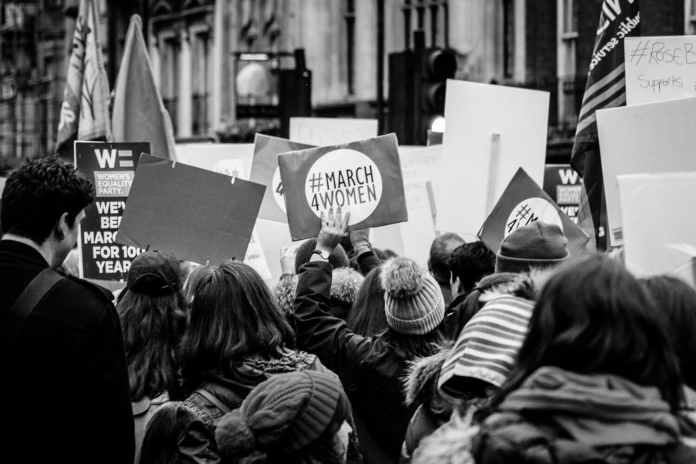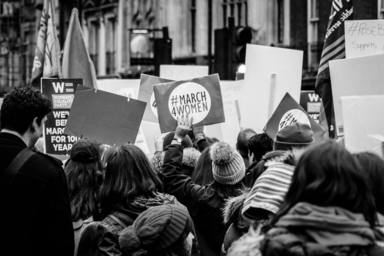Last June, J.K. Rowling, author of the beloved Harry Potter series, decided it was a good idea to spout transphobic rhetoric in a series of tweets during Pride month. Her tirade began with a response to an article discussing global health and hygiene needs for “people who menstruate,” stating: “‘People who menstruate.’ I’m sure there used to be a word for those people. Someone help me out. Wumben? Wimpund? Woomud?” After being called out, she doubled down on her views in a lengthy essay titled “TERF Wars,” making the claims that young people who decide to transition often “grow out of their dysphoria” and regret their decisions and that allowing “any man who believes or feels he’s a woman” into a woman’s restroom will jeopardize female safety. Both claims are classic anti-trans talking points.
Contrary to what Rowling might think, the word “TERF” is not an anti-woman term. Rather, it stands for “trans-exclusionary radical feminist” and is used to describe a person whose concept of feminism does not include transgender women. Rowling is just one of many liberal white women who do not acknowledge intersectionality in their perception of feminism. Intersectional feminism means recognizing how overlapping identities including race, class, sexual orientation, body shape and (dis)ability affect how a woman experiences oppression. For example, a white, cishet, able-bodied woman—who fits all of society’s eurocentric beauty standards—has more privilege than a Black transgender woman. And yet, white feminism is the brand of feminism that gets the most mainstream attention.
The history of the feminist movement has always been centered around white women. The image of the “quintessential feminist” is typically linked to Elizabeth Cady Stanton and Susan B. Anthony, two of the most famous advocates for women’s suffrage. However, these same two women were disapproving of the fact that Black men would get the right to vote ahead of white women. Meanwhile, Ida B. Wells, a journalist who formed the first suffrage organization for Black women and fought for both women’s rights and civil rights, is often forgotten by history. During demonstrations and protests, white suffragists often demanded that Black women march at the back of the line. In short, white feminism is rooted in white supremacy.
The problem with non-intersectional feminism is that it puts womanhood above all else. The woman is always the victim, even when they are being criticized for legitimate reasons. One example is the way certain fans of Taylor Swift, or “Swifties,” will immediately internalize any criticism of Swift as being misogynistic. But Taylor Swift is the perfect example of a white woman who is lauded as a quintessential “feminist icon” yet rarely acknowledges how her privilege has benefited her. It is only fair that minority women call this out. White feminists also tend to dismiss the achievements of men of color, just as Elizabeth Cady Stanton and Susan B. Anthony did back in the 19th century. During the 2018 Oscars, Emma Stone referred to the nominees for Best Director as “four men and Greta Gerwig,” effectively diminishing the achievements of Guillermo del Toro, a Mexican immigrant and Jordan Peele, only the fifth Black person to be nominated in the category. In short, white women love to center themselves in the conversation while completely excluding the concerns of other minorities.
Intersectional feminists work to ensure that the needs of all women are visible within the feminist movement. Intersectional feminists acknowledge which privileges they benefit from, and uplift the voices of women of color, LGBT+ women, disabled women, sex workers, etc. It may take some effort to unlearn our internal biases, but in the end, we should all be intersectional feminists.



